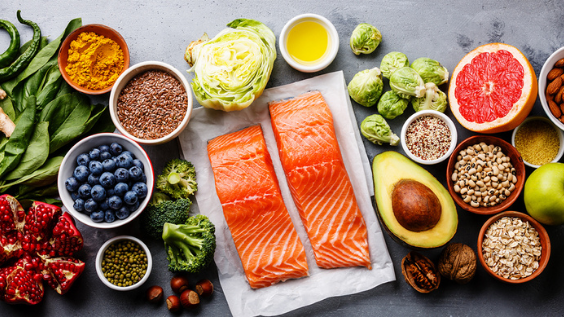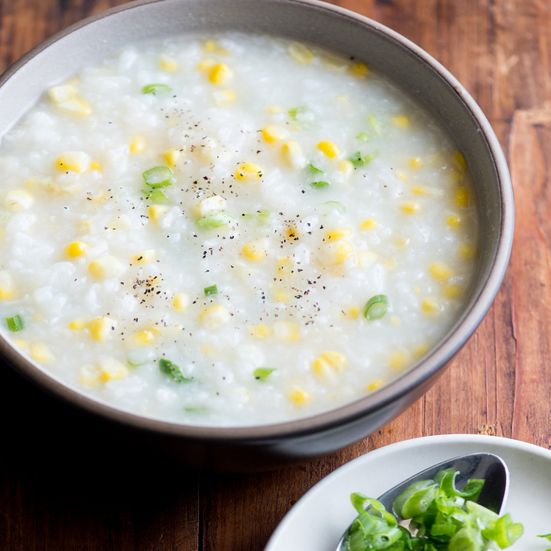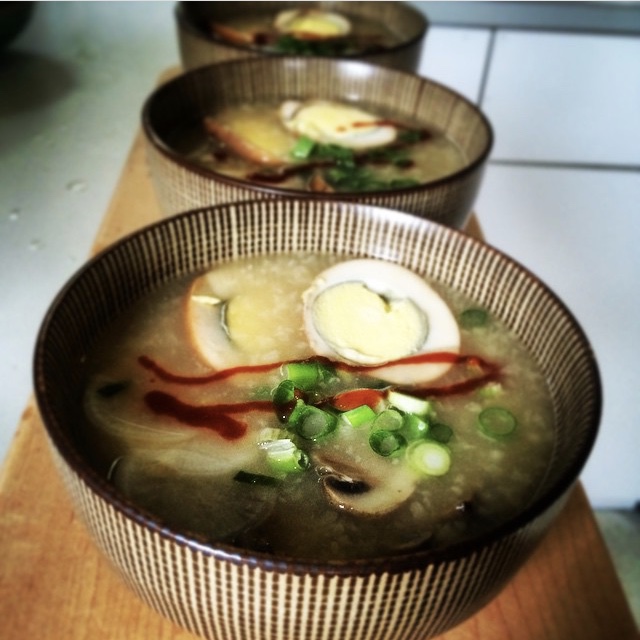
Chinese Dietary Therapy
Traditional Chinese medicine (TCM) is a holistic and comprehensive system of health that views the body in accordance with nature. It puts the utmost importance on lifestyle choices and nutrition, and if these fail to bring the body into balance then it is time to look into herbs and acupuncture. In TCM there is no distinct difference between food and medicine, meaning that food itself can sometimes be all the medicine you need. Food is viewed as a powerful tool to help create and maintain wellness.
This article will first discuss some basic diet recommendations and then go into further detail of Chinese medical theory at the end for those interested. Having a basic understanding of Chinese medicine theory is important to make educated choices when deciding upon your individualized diet plan.
The Basics Of The Chinese Medicine Diet
The basis of healthy eating in regards to TCM is filling most of the diet with fresh foods that are free from chemicals, preservatives, and over-processing. These foods are seen as the most vital, that is full of Qi.
Vegetables should be cooked only lightly to preserve beneficial enzymes and vitamins. People should eat according to their particular constitution (more on this below!) with the largest meal of the day in the morning. Beans and grains should be soaked and properly cooked to allow for easy digestion. Not only is a healthy diet integral to optimal health, it is crucial to get physical and mental exercise as well as rest.
A Little Bit Of Theory
According to Chinese medicine, every food and herb has a nature, flavor, and organ system/meridian associated with it. The nature describes the effect of the food (or herbs) on the temperature of the body, while the flavor describes the taste.
Instead of viewing meals as a breakdown of proteins, carbohydrates (sugars), and fats, Chinese dietary therapy utilizes the flavors and natures of foods as a guide to a well-balanced meal. Learning how to utilize the nature and flavors of foods and herbs is really where the true healing capacity of this diet lays.
There is also the belief that the seasons have a profound impact upon our well-being, and eating according to the seasons can have great impacts on our health. We are immensely influenced by changes in the climate and we should learn to live and eat in balance with those changes.
Chinese diet therapy also focuses on a mentality that “like treats like.” For example if woman had a particularly heavy menstrual cycle and was feeling fatigued, then eating some extra red meat or foods high in iron can help. If someone was struggling with pain in their joints, some bone broth can do the trick. Also foods that resemble parts of the body are often used to help support that specific part: walnuts for the brain, pomegranates for women’s health.
Food As Everyday Medicine
There is a lot to learn when it comes to Chinese medicine and the Five elements, but even learning and incorporating the basics into your everyday life can have profound impacts. The main lesson here is to observe your body and its patterns to learn what it needs to find balance. Some simple ideas are if you are feeling over heated- eat come cooling cucumbers, feeling bloated or have edema- cut down on your salt intake. A great way to incorporate healing foods and herbs into your diet is to make congee! (Recipe listed here!)

Digging Deeper Into The Chinese Medicine Diet
If you want to go deeper into Chinese dietary therapy it is advised that you see a Chinese medicine practitioner or acupuncturist. They will be able to figure out a pattern differentiation of your current constitution. This will usually be an explanation of where the body is out of balance in regards to the five elements (fire, earth, metal, water, wood) or organ systems (heart/small intestine, spleen/stomach, lung/large intestine, kidney/bladder, liver/gallbladder).
Once you have this information you will be able to make more informed decisions of what flavors, and natures of foods can nurture your body best.
5 Natures, 5 Flavors
Nature (Temperature)
The nature of foods and herbs describes the temperature changes that they cause within the body. (Warming foods help to move the blood and qi of the body to the surface and may cause sweating.) This not only has to do with the energetic properties and inherent temperature based-natures of the foods themselves but with how the foods are prepared or cooked (roasting, broiling, and heating equating to warm while iced and raw correspond to cold). Also plants that take longer to grow such as carrots, ginseng, cabbage or rutabaga are considered to be warmer foods then those that grow quickly such as cucumbers, radish, and lettuce.
Warming foods can help to stimulate body functions and raw food can help cool us down. Too much hot or warming foods can over stimulate our system while ingesting too many raw or cold foods can slow down our digestive processes. Like all things in Chinese medicine, it is about creating balance and finding harmony within your system, so eating a variety of warm and cool foods can help to create a well-balanced diet.
- Hot
- Warm
- Neutral
- Cool
- Cold
Flavor
Understanding the five flavors of Chinese medicine is a very important part of its dietary therapy. They are associated with a specific organ system or meridian and they have inherent qualities that have a very powerful impact upon that organ itself. These flavors can help create balance within the body and can also help to bring a person into harmony with the seasons. It is also important to note that too much of a specific flavor can also do harm to its corresponding organ system . For example sweet foods can help to tonify the spleen/ stomach and improve digestive function, but too much sweet foods can result in weakening the digestive capacity and creating sugar imbalances like diabetes or metabolic syndrome.
- Sour
- Bitter
- Sweet
- Acrid (spicy/pungent)
- Salty
(Additionally some people consider Bland to be a flavor, but this isn’t directly associated with the five element theory, even though bland foods and herbs can be very beneficial and are associated with diuretic actions. Otherwise they are considered a division of the sweet flavor.)
Organ System Association
In Chinese medicine the organ systems (zang-fu) are a detailed blue print of the makeup of the human form. The organ systems are not only the physiological tissue that comprises each vital organ but the entirety of its bio-mechanical pathways, mechanisms, and associations with nature such as emotion, taste, sense organ, season, color, and time.
The five flavors are directly linked with a specific organ system and each flavor helps to benefit its related organ system, but over consumption of a specific flavor can cause harm as well. Sour foods are associated with the liver and gallbladder (as well as the health of our tendons and ligaments), so too much sour food can cause injury or pain and cramping of our sinews. Bitter foods, such as coffee, are associated with the heart/small intestines organs in Chinese medicine and while coffee can stimulate fluid circulation and help increase your metabolism, too much can be overly drying on your body.
- Sour- liver/gallbladder
- Bitter- heart/small intestine
- Sweet- spleen/stomach
- Acrid- lung/large intestine
- Salty- kidneys/bladder

Energetics And Therapeutic Uses Of The Five Flavors
- Sour: Astringents, helps to control Qi, blood, shen, essence. Helps retain our needed body fluids, moves inward and downward. Can help promote contraction in the digestive system.
- Bitter: Clears and purges, helps to dry dampness, consolidates yin, and calms shen, has desending movement
- Sweet: Supplements, tonifies and moistens, reduces side effects of other herbs, lifting action, great choice when conditions of dryness are present, such as some conditions of constipation.
- Acrid: Causes upward and outward movement, dispersing, promotes Qi and blood circulation, lifting action
- Salty: Energetically leads downwards and softens hardness, helps purge, can help lubricate intestines and help remove waste accumulation.
Examples Of Foods Related To The Five Flavors
- Sour: Some examples are pomegranate, vinegar, lime, lemon, fermented foods
- Bitter: Parsley, mustard greens, kale,dandelion greens, collard greens, burdock root, coffee
- Sweet: Rice, chicken, whole grains, sweet potatoes, cabbage, carrots, onions, squashes, corn, fruits, goji berries, honey
- Acrid: These foods include things like scallions, daikon radish, ginger
- Salty: Seaweeds, miso, sea salt, tamari, pickles, ocean fish, shellfish

Tips To Incorporate This Diet Into Your Life
- Listen to your body- This is always number one! The best diet plan is one that works for the individuals unique needs and specific constitution.
- Seasonal eating: Eating according to the seasons is very important as our bodies also go through cyclical changes throughout the year. This is not only about eating fruits and vegetables that are currently in season, but following the five element examples of foods that can help bring you into balance.
- Eating at regular intervals: The earth element (spleen/ stomach organ systems) loves a routine, so eating at regular times of the day can help assist the gastrointestinal tract to perform optimally. And remember not to skip breakfast or eat more than you need!
- Eat moderate amounts- It is important to listen to your body when it tell you it is “full” or has had enough. Overeating makes it hard for the Spleen and Stomach to effectively digest food and allocate the nutrients to parts of the body that need it the most. Underrating may leave the body malnourished or dehydrated leading to things such as constipation or slow healing times.
- Make breakfast your largest meal: The first meal of the day helps to ignite your digestive system and the morning hours are also the time when the organs of the digestive system are most active according to the Chinese medicine clock (stomach 7-9am and spleen 9-11am)
- Cut back in the cold raw foods: Too much cold foods can slow down our physiological processes, and create dampness, and out out our digestive fires, so a Chinese diet tends to stay away from things like ice water, smoothies and too many raw salads. Opt for room temperature water, slightly steamed vegetables, and if you are craving those crunchy raw salads, have a cup of nice warm soup or bone broth first. Go easy on damp creating foods such as dairy, fatty foods, refined sugars, which can slow down your metabolism and the spleen and stomachs process of transformation and transportation, and may lead to sluggish activity of the Liver.
- Eat lots of veggies: Pretty simple advice- fill your plate with mainly fresh lightly cooked vegetables, your body will thank you!
- Cook and eat mindfully:Taking time to cook and eat is important, so slow down, turn off your phone and chew your food fully. Mindfulness can help boost your digestion, turn around any unwanted relationships around food and make you feel better all around. This new awareness can also help you tune in to any food sensitivities or foods that may not be best for your body. Try to avoid eating when you are stressed-out or aggravated as this can negatively impact digestion.
- Get up and move! In Chinese medicine the root of many diseases is stagnation, and lack of movement and Qi flow, so make sure you get your blood moving. Daily exercise can help boost your metabolism and improve your digestive function.
